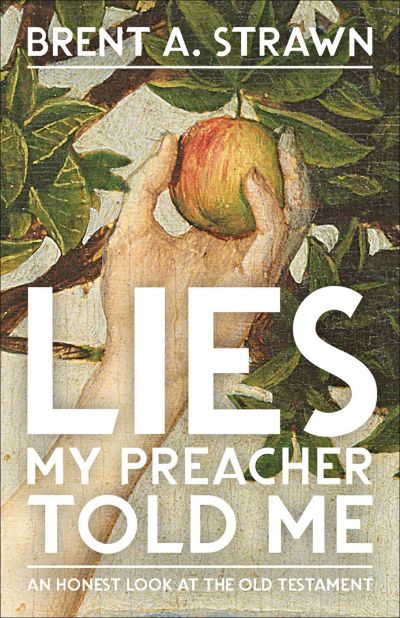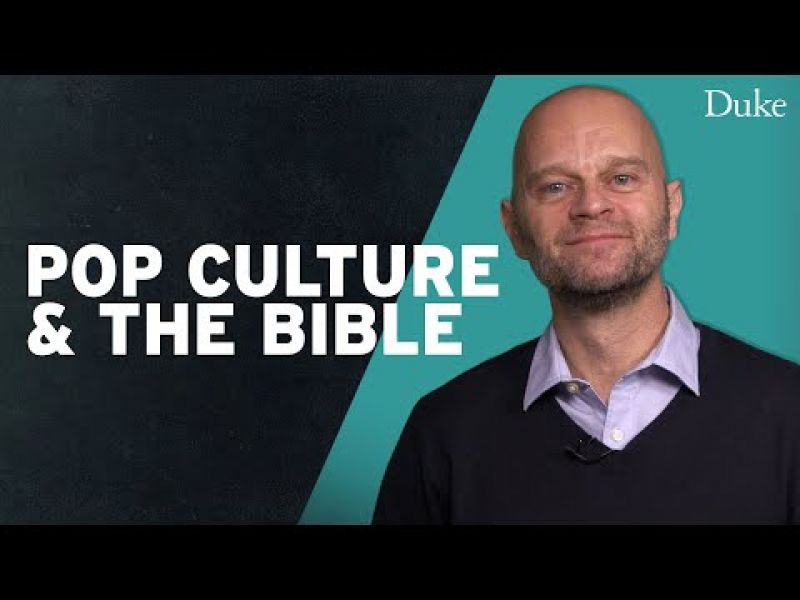You could be forgiven for thinking Professor of Old Testament Brent Strawn takes a dim view of the state of the Old Testament in contemporary Christian understanding. His upcoming book is Lies My Preacher Told Me: An Honest Look at the Old Testament, and the title of another recent book is even bleaker: The Old Testament Is Dying. But if the Old Testament is dying, Strawn isn’t letting it go down without a fight.
Strawn grew up in the church, in San Diego, Calif. But in his youth and even as a Bible major at Point Loma Nazarene University, he found that the Old Testament wasn’t frequently preached on, and teaching was geared more around the New Testament. The Old Testament was, he says, “the great undiscovered country.” In seminary at Princeton, he found Old Testament faculty who captured his imagination and inspired his scholarship.
An ordained elder in the North Georgia Conference of the United Methodist Church, Strawn taught for three years at Asbury Theological Seminary and for 18 years at the Candler School of Theology at Emory University, where he was the William Ragsdale Cannon Distinguished Professor of Old Testament. He joined the Duke Divinity faculty in 2019 and also has a secondary appointment at the Duke University School of Law.
“Whenever we face crises or issues, they are occasions for us to reread the Bible with fresh sets of eyes, looking for words of address.”
In Lies My Preacher Told Me, Strawn addresses a lay audience with arguments that are applicable to many Christians —including the students he teaches—and attempts to counter common misconceptions about the Old Testament: that it’s too violent, not relevant to their contemporary lives, and they’re better off focusing on the New Testament.

Abandoning the Old Testament to these misconceptions leaves us without its robust toolbox of texts with which we can approach some of the most serious problems we face in the world today, he says.
“Whenever we face crises or issues, they are occasions for us to reread the Bible with fresh sets of eyes, looking for words of address,” he says. “In these days, several key texts are important for me. For economic and racial justice issues, it’s hard to do better than the Book of Amos, and the articulate statement of God’s judgment that’s found there that’s specifically oriented around social injustice and economic disparity. That could have been written last week.” God’s wrath and judgment that some mischaracterize as “hyper-violence,” he says, “means the end of indifference.”
“So when you watch the news crawl with Amos, you can’t be indifferent. You have to care,” he says.
Strawn also cites the importance of the Psalms and how they’re a resource for articulating grief, sorrow, anxiety, and deep anger.
“The cursing Psalms are a poignant resource when we think about the enemies that we face. Those enemies don’t have to be just human beings, they can be institutions, they can be metaphor-ized systems like racism. What the cursing Psalms do is take all that wrath and anger that has to be uttered—it can’t be repressed—but it’s uttered within the confines of prayer, and that’s a rather remarkable place to utter it. It’s very different than uttering it in the public square. It’s very different than uttering it in the heat of battle. It’s a very different way to let it go and hold it back at the same time, and to bring it in the context of worship with fellow believers who can hear it and then wonder perhaps how they might help.”
The Book of Ecclesiastes, he says, also offers wisdom for contemporary Christians, putting them in touch with the finitude of all human endeavors and encouraging them to savor the small gifts they can experience. The Book of Genesis gives Christians a framework for understanding the image of God as a call to emulate God, “to be creative, to make room, to bless, to be generous, particularly toward animals and the land and other created things” and “to take better care of the world than we’re doing right now.”
In addition, while many scholars highlight the need to understand the Old Testament in order to better understand the New Testament, for Strawn, studying the Old Testament is more than a matter of biblical information.
“If we want to understand God’s ways in the world, we need to understand the symbolic world of the entirety of Scripture, Old and New Testaments.”
“It’s about formation,” he says, “The Old Testament was the symbolic world within which the New Testament authors lived. If you want to understand anything about the New Testament, you have to understand that symbolic world. But the same is true for us now: if we want to understand God’s ways in the world, we need to understand the symbolic world of the entirety of Scripture, Old and New Testaments.”
Fundamentally, Strawn says that the issue of reading Scripture well comes down to a disposition of attention and address.
“Listening to Scripture in the Christian tradition means paying a kind of trusting attention to it that expects to hear from it a word of God to the reader, to the community of faith. That disposition is so crucial. It’s something that I think can be taught, but it’s also cultivated, it’s a practice, it’s a discipline, to come to Scripture with a trusting disposition and listen for address.”
Even when we encounter various problems within Scripture, such as outdated gender roles or the problem of priestly law, Strawn says a disposition of trust toward the text means we may yet still hear a word of address to us that can change us for the better.
“The best interpretation of Scripture always results in better love of God and love of neighbor. The early church thought the more difficult a text was, like say, some violent text, some disturbing text, it must mean more than what it seems to mean—something deeper that helps us love God and our neighbors.”
Strawn tells his students to think of reading the Old Testament as learning a new language—it’s tough, but you start with the basics and build up to a more complex understanding and an ability to “speak” the language of the Bible. “To be good at a language, even our own language, is in a lot of ways a lifetime project,” he adds.
The survival of the Old Testament is critical for Christians to stay honest, in touch with reality, Strawn says, to ensure we have a community of Christians “who are not interested in denial about their wrongdoing or anybody else’s wrongdoing, and not tight-lipped about what deserves praise and glory to God, but are candid about both things; who realize that their best speech about God will have to traffic in beautiful imagery and high metaphor because how else are they going to begin to describe the infinite in finite language?; and who are in firm touch with their belongingness to a larger community of faith that is truly vast, highly diverse, global— not just across the globe, but also vertically across time, spanning many generations and millennia.”
And don’t call in the coroner yet: there are still signs of life for the Old Testament today.
“I think the situation is rather dire for a lot of pockets of Christianity, especially in North America, and not only there. But I think there are also pockets of excellence,” he says. “I think that whenever Christians do their best to listen to the whole Bible, where churches do the same, where there’s robust teaching and preaching and reading and singing from the Old Testament, that these are signs of life, and they are the hope of continued survival for the Old Testament.”
